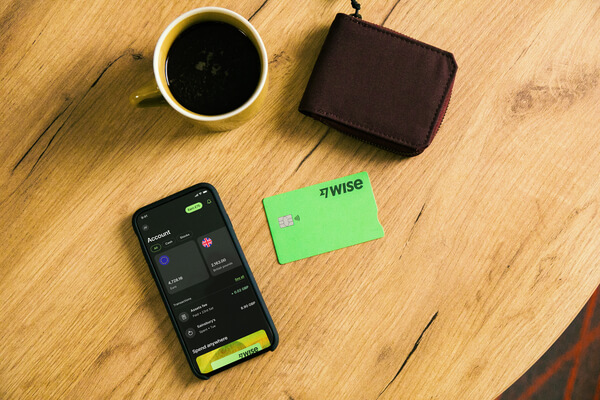How to open a Virgin Money Australia account. The steps, fees and requirements.
Looking for how to open a bank account with Virgin Money in Australia? We’ve got you covered. Here’s the process, fees and what you need to know.

Decided to move to Ireland? Great choice. From lively pubs to beautiful scenery, lots of culture and busy friendly cities, Ireland truly has something for everyone. As a bonus, opening a bank account is relatively straightforward, which is one less thing to worry about while you plan your move. Read on to find out what you need to do.
You’ll need two documents to open an Irish bank account: one valid form of photo ID and a document to prove your address. Your passport, driving licence or national identity card (if you’re an EU citizen) are all valid forms of photo ID. In order to prove your address, you will need to produce one of the following documents:
Of course, if you’re new to Ireland, you may not have any of these documents. Luckily, that’s not a problem. In Ireland, you can open a bank account even if you’re a non-resident. Many banks will accept a utility bill, bank statement or government correspondence with your home country address. However, some banks will require non-residents to provide two proof of address documents instead of one. You may also be asked to provide a character reference and access to your financial history in your home country.

Unfortunately, very few Irish banks will let you open an account online. Most of the time, you’ll have to make an appointment and visit a branch. That said, you can open an account remotely by downloading an application form, filling it in and mailing it to the bank together with copies of your photo ID and proof of address documents.
The copies of your photo ID and proof of address have to be certified. To do this, you’ll have to get them signed and stamped by a chartered accountant, a notary public, a practicing solicitor, a commissioner for oaths or an embassy official. The person who certifies the document must:
It’s worth noting that most banks will insist on meeting you in person before they approve your application and open your account.

Old-world bank accounts only work properly in one country. They hold money only in one currency. And it gets expensive when you try to use them across borders. Wise's new Borderless accounts solve all of this.
Now you can send, receive and organise your money internationally, without crazy fees or even-crazier exchange rates – just a small, fair charge when your money moves between currencies.
There are dozens of retail banks in Ireland, all offering broadly similar products. However, the three biggest banks in the country are Bank of Ireland, Allied Irish Banks and Ulster Bank. Let’s have a look at what they each have to offer.
Bank of Ireland is the oldest and largest bank in Ireland. It also has the largest branch and ATM network in the country. You can apply for a personal account online, and you’ll get a visa debit contactless card, online banking and an overdraft facility as standard.
You can also apply for a student account and business banking facilities. In order to open a student account, you have to be a full-time university student. You’ll get a free contactless visa debit card (the bank will pay the government stamp duty for you) and, more importantly, you won’t be charged for several types of transaction that would otherwise incur a fee.
Bank of Ireland’s business banking facilities include a contactless visa debit card, overdraft facilities and the support of a business advisor, which is really helpful if you’re just starting your business.
AIB’s Personal Current Account is free if you stay €2,500 in credit at all times. You’ll also get a visa debit card with which you can get cashback at selected retailers.
You can only apply for an account in branch, or remotely by filling in and mailing a form. In addition, contactless functionality on your visa debit card is not standard, but subject to status. This means that the bank will decide whether you’re eligible for a contactless card depending on your personal circumstances and financial situation.
If you’re a full-time university student, you can apply for a Student Plus Account. This comes with a number of perks, including no maintenance fees and an interest-free overdraft of up to € 1,500. AIB’s business banking facilities are particularly good if you’re just starting your business.
Besides a dedicated business current account, you can get a whole business startup package. This includes a current account, a business startup loan and support in the form of online tools, business document templates and a business advisory service.
Ulster Bank’s bank accounts start at €4 a month, which will be waived if you keep €3,000 in your account at all times or are aged 60 and over. You’ll get a visa debit card, access to planned overdraft facilities and an emergency cash facility which allows you to withdraw money from an ATM using only a code if your card is lost or stolen.
The Student Account doesn’t have any maintenance fees.
You’ll also get an arranged fee-free overdraft of up to €1,500. You can also open a business bank account for a relatively low fee of €5.08 every three months.
While the three biggest banks in Ireland are probably your best bet, it may also be worth looking into Permanent TSB. Permanent TSB’s current account is completely free if you deposit €1,500 a month. Unlike other banks, you can take the whole sum out of your account again without incurring the maintenance charge. You’ll also get 1% interest on the first €1,500 in your account. This isn’t much, of course, but it’s better than nothing.
Most Irish banks charge a number of fees. The main fee you’ll need to pay is a maintenance fee. This is normally charged either every month or quarterly (every three months). You can normally avoid this fee simply by crediting your account with a minimum amount.
In most cases, you’ll need to leave your account in credit at that minimum amount, otherwise the fee will still apply. In addition, visa debit cards are subject to government stamp duty, which is currently set at €2.50 per year. This is a relatively low amount, but it’s good to know about it. Some banks may also charge for ATM withdrawals and deposits, for debit card transactions (including contactless transactions) and, incredibly, even for over the counter transactions with one of your bank’s tellers. It’s a good idea to go through your bank’s terms and conditions. That way, you’ll know what fees and other charges you’re in for and whether there’s any way you can avoid them.
Finally, don’t forget about international money transfer fees. When you make an international money transfer, you can be hit with fees both from your Irish bank and from your home country’s bank. Plus, chances are you’ll get an unfavourable exchange rate. Using your bank is rarely the cheapest way to make an international money transfer.
Northern Ireland is part of the UK, which means that UK banking rules, not Irish rules, apply. This makes opening a bank account in Northern Ireland a bit more difficult than opening a bank account in Ireland.
As in the rest of Ireland, Northern Ireland’s largest banks are the Bank of Ireland, AIB (called First Trust Bank in Northern Ireland) and Ulster Bank. The main difference is that, as in the rest of the UK, a basic bank account is free to open and use. Your visa debit card will also be free, as Irish government stamp duty on bank cards doesn’t apply in Northern Ireland.
You also need to keep in mind that, unlike the rest of Ireland, the currency in Northern Ireland is not the Euro, but the British Pound.
Thankfully, you won’t be charged a fee when you withdraw Euro in the rest of Ireland, provided you use one of your bank’s ATM machines. However, you will be charged a non-Sterling transaction fee if you use an ATM outside of Ireland or the UK.
*Please see terms of use and product availability for your region or visit Wise fees and pricing for the most up to date pricing and fee information.
This publication is provided for general information purposes and does not constitute legal, tax or other professional advice from Wise Payments Limited or its subsidiaries and its affiliates, and it is not intended as a substitute for obtaining advice from a financial advisor or any other professional.
We make no representations, warranties or guarantees, whether expressed or implied, that the content in the publication is accurate, complete or up to date.

Looking for how to open a bank account with Virgin Money in Australia? We’ve got you covered. Here’s the process, fees and what you need to know.

Learn how to close your Revolut Australia account. The steps, options and important need-to-knows before your begin.

If you’re a student juggling study alongside work and social commitments, ensuring you have reliable and easy access to your money is essential. Choosing a...

Coming into student life something you might not think to address straight away is your banking. Many Australian banks offer accounts designed for students,...

Depending on the bank, student bank accounts might have extra features or slightly better conditions for those studying, when compared to a standard account....

Here’s how to close your ME Bank account and options to move your money out correctly